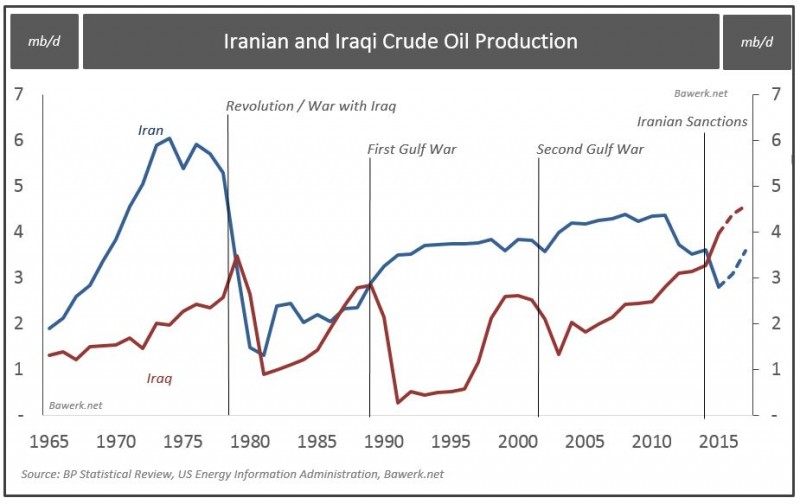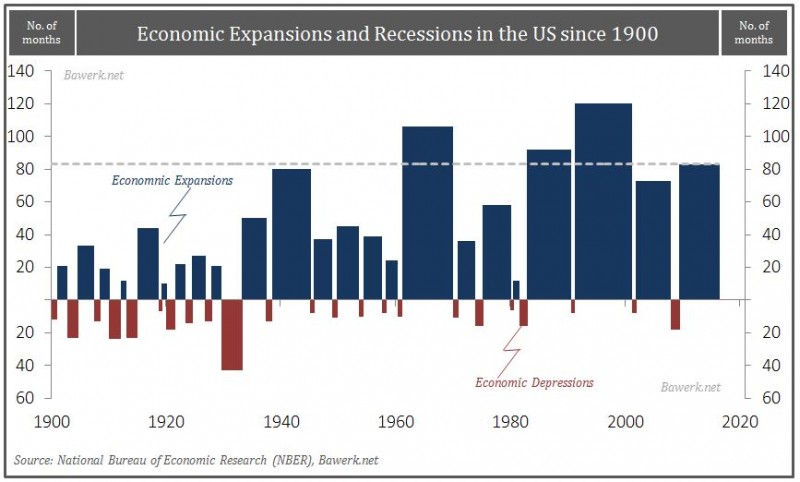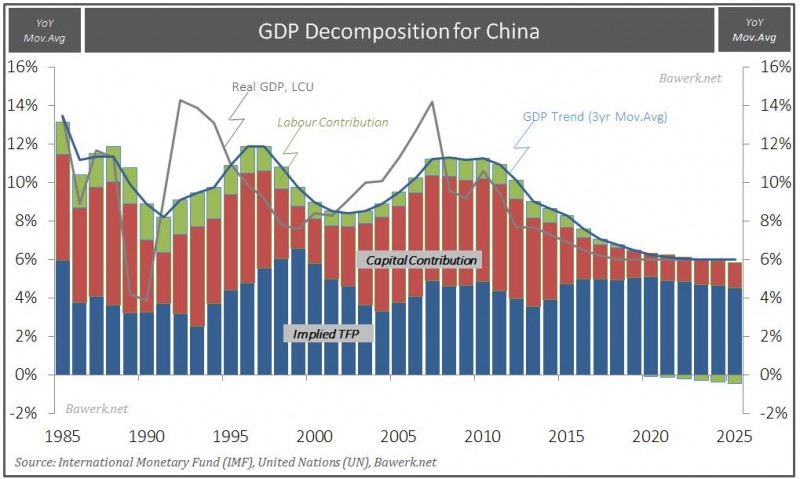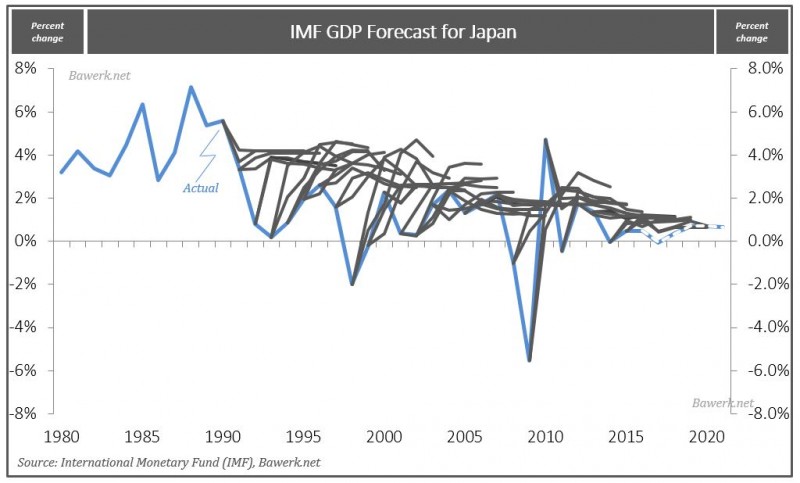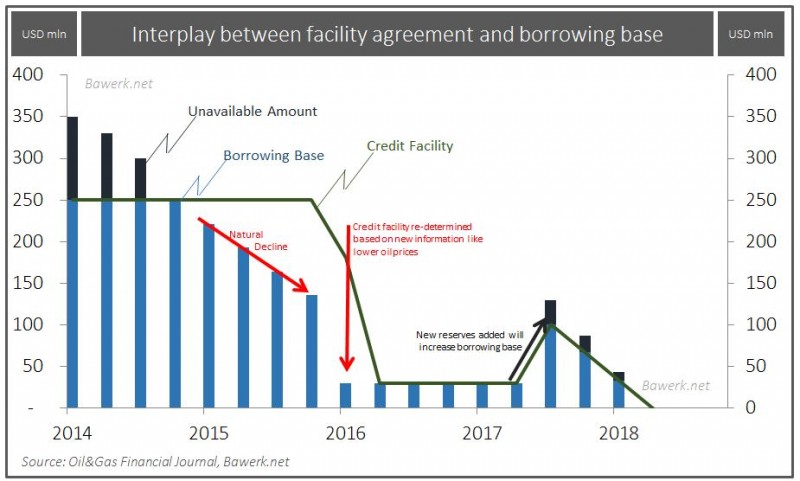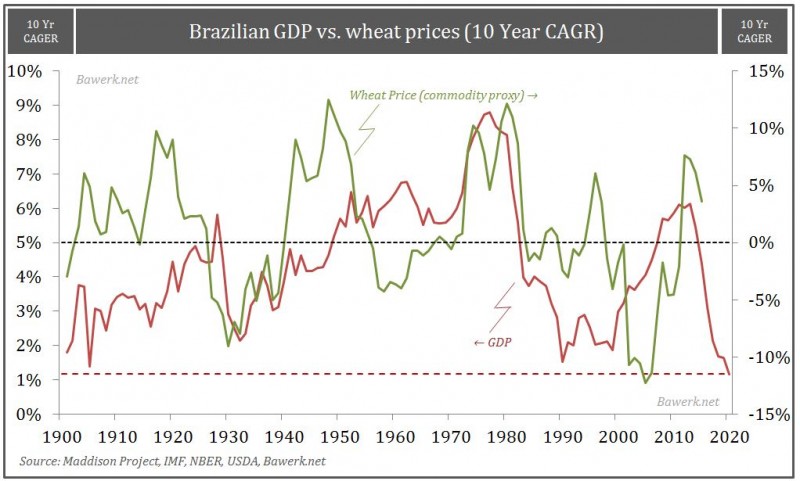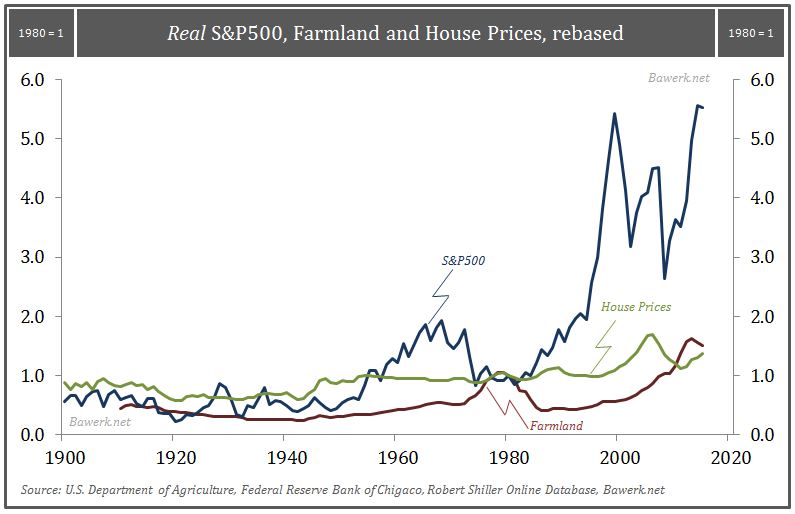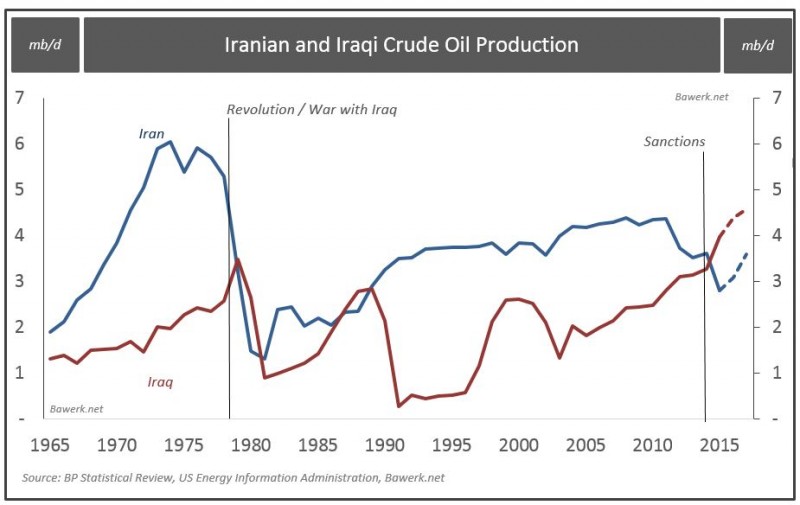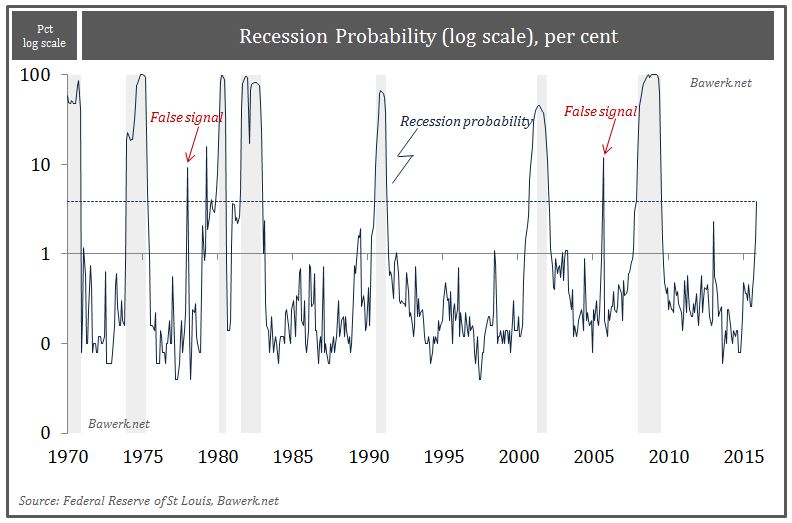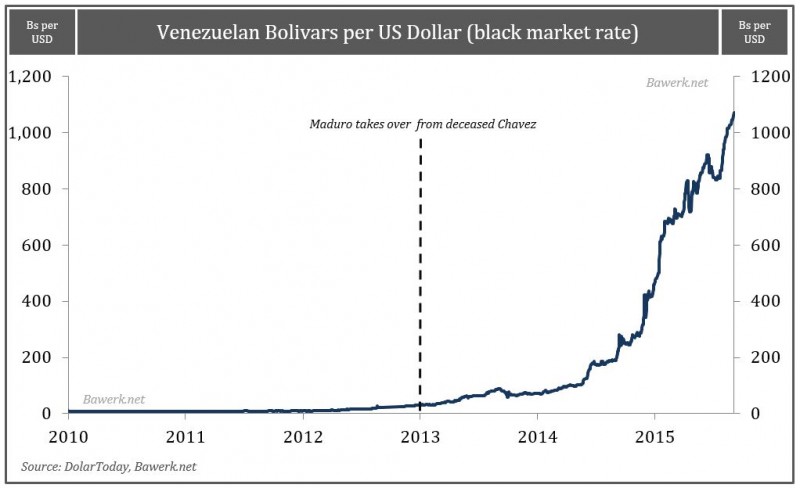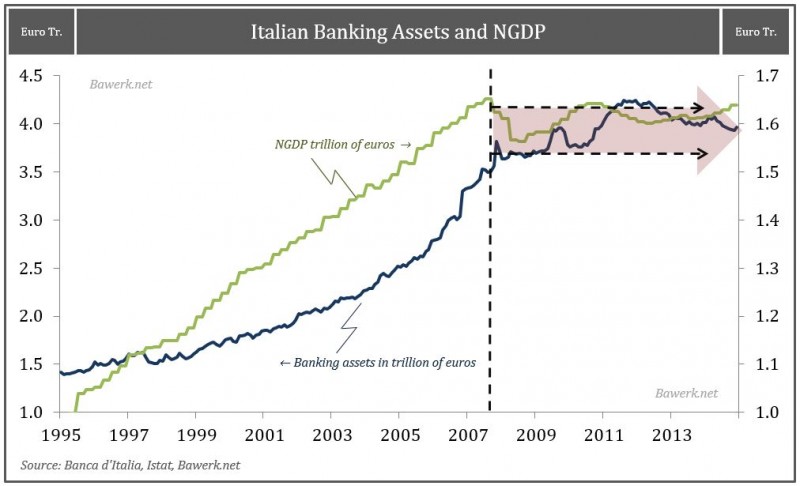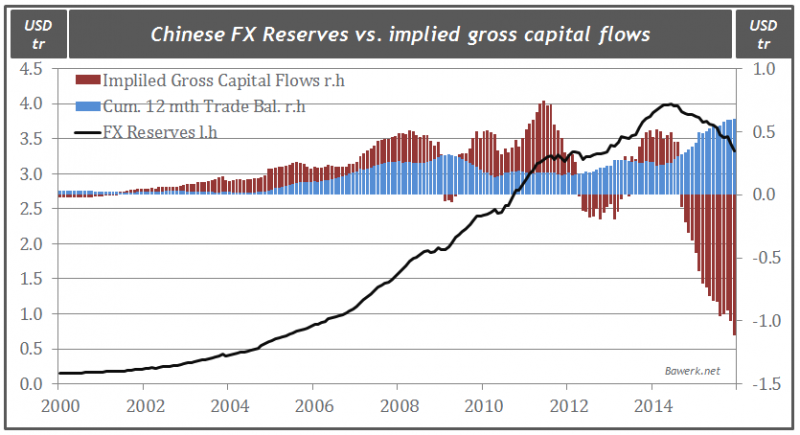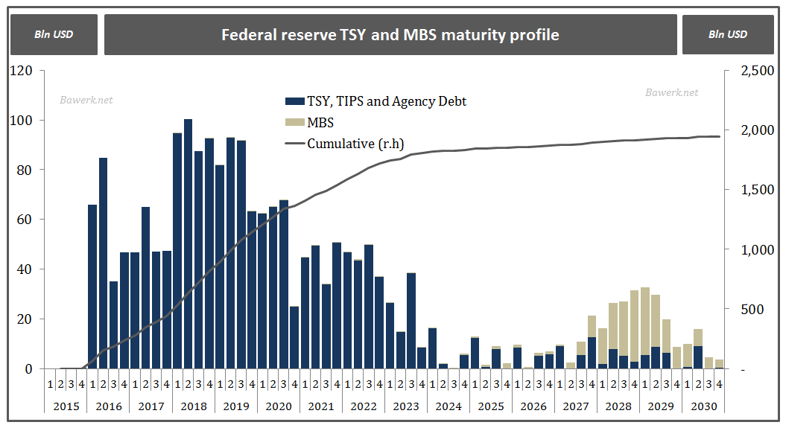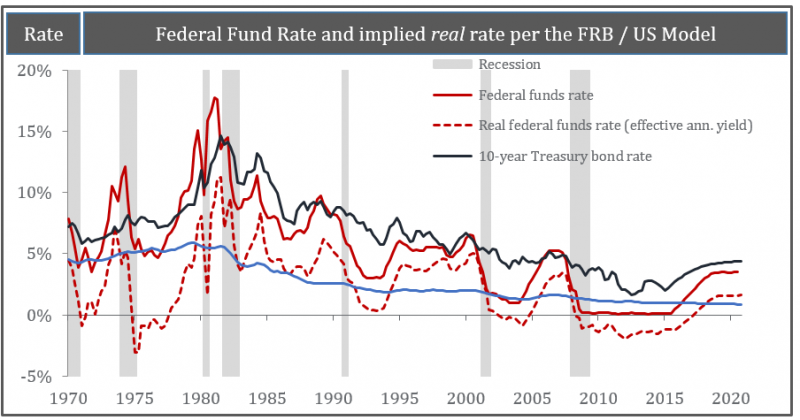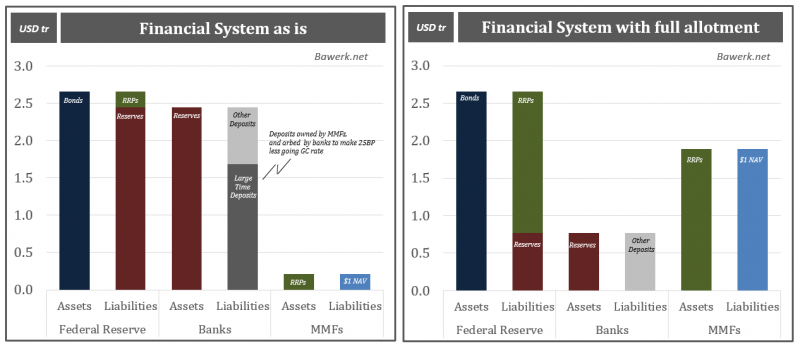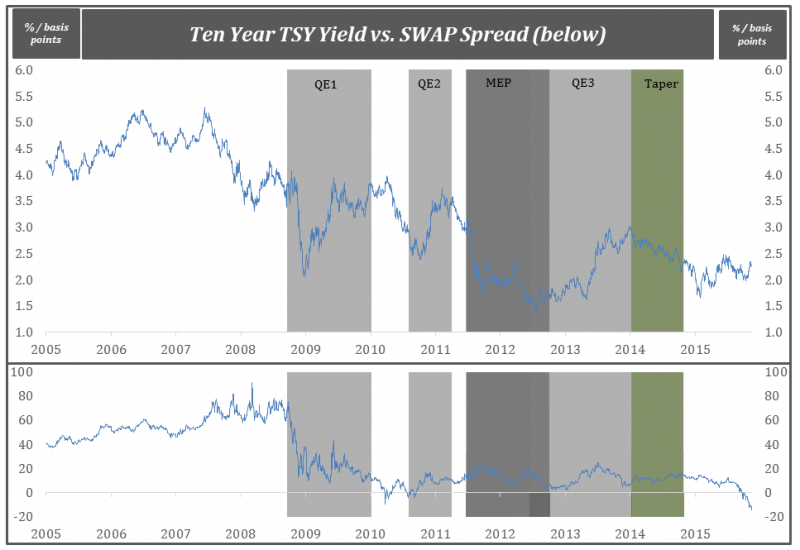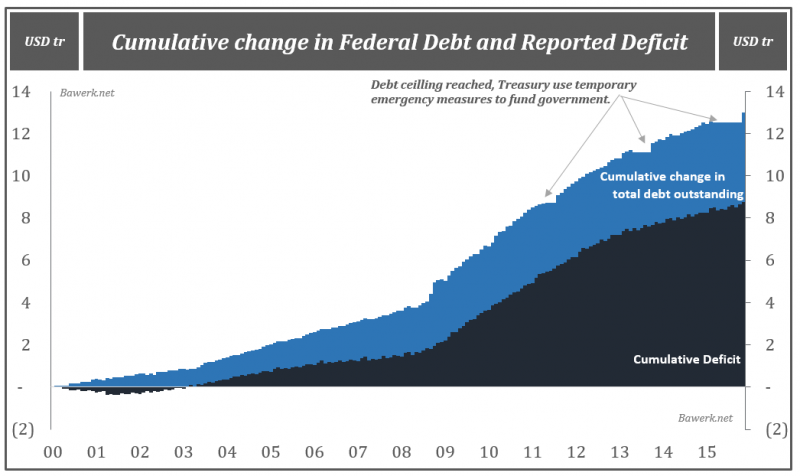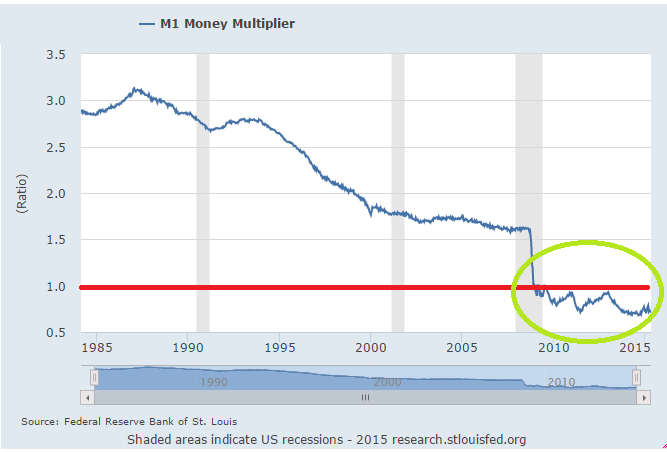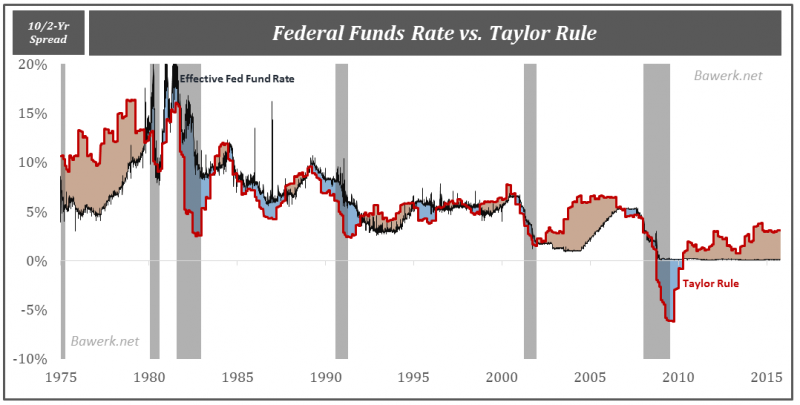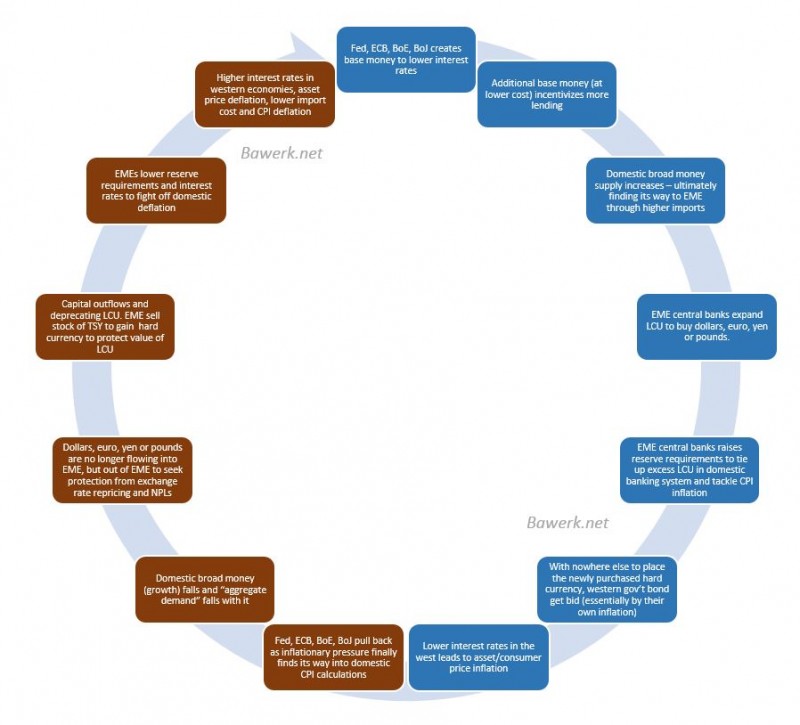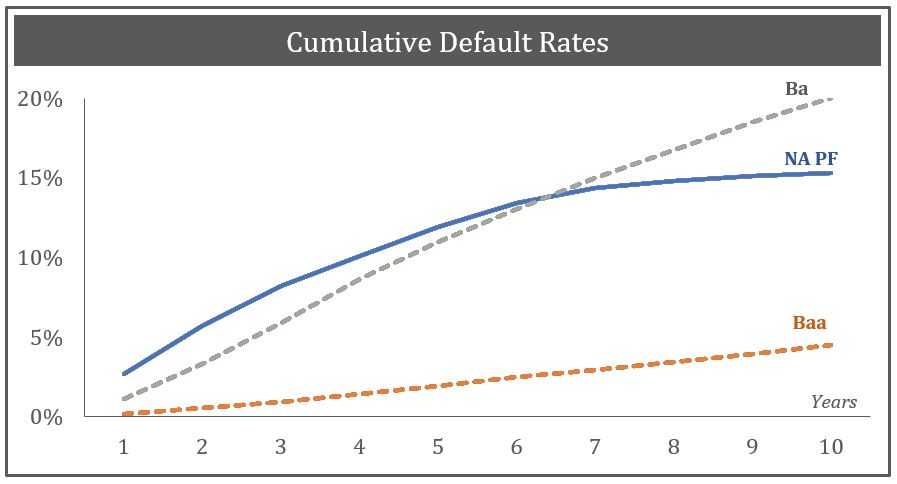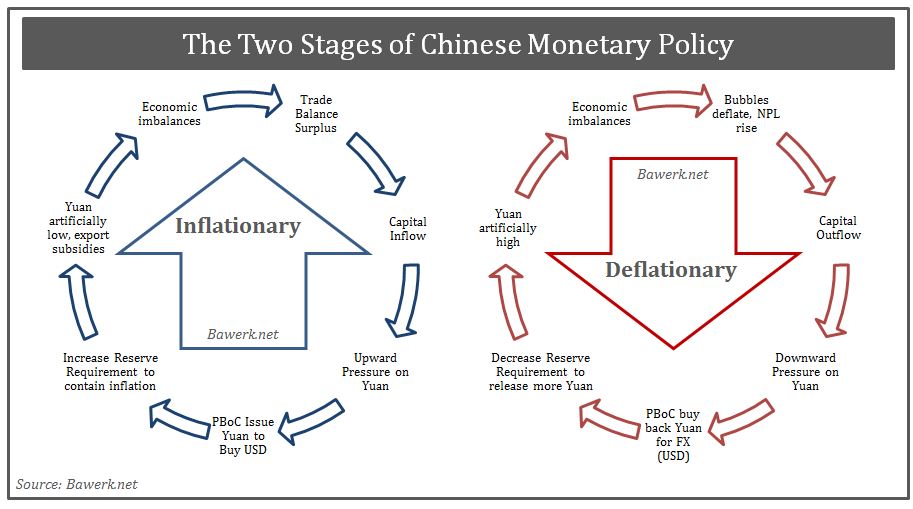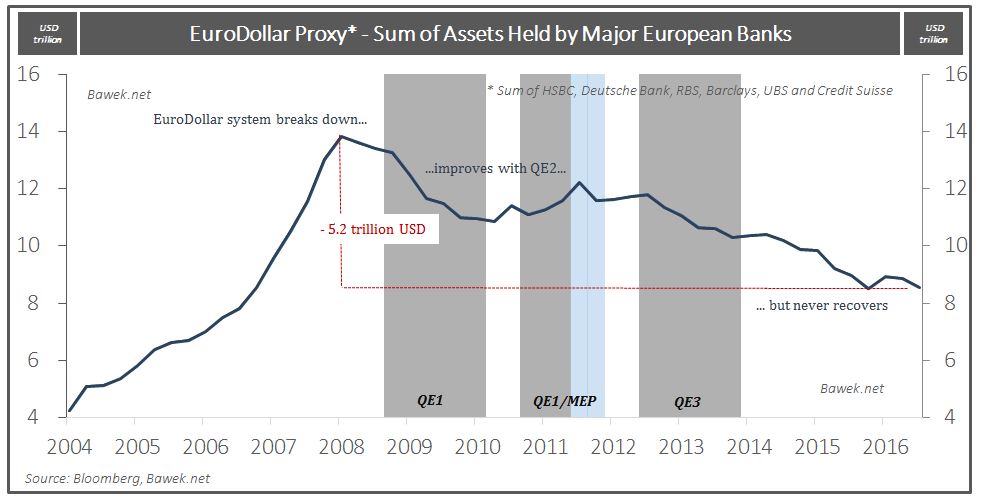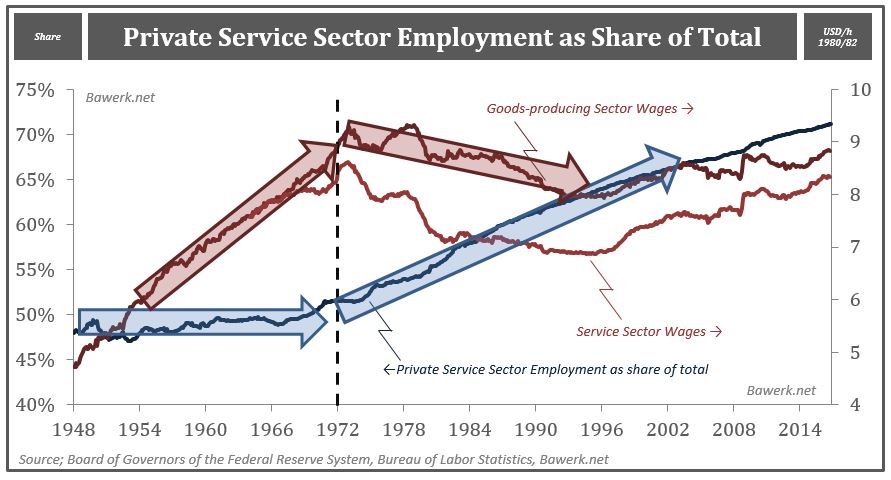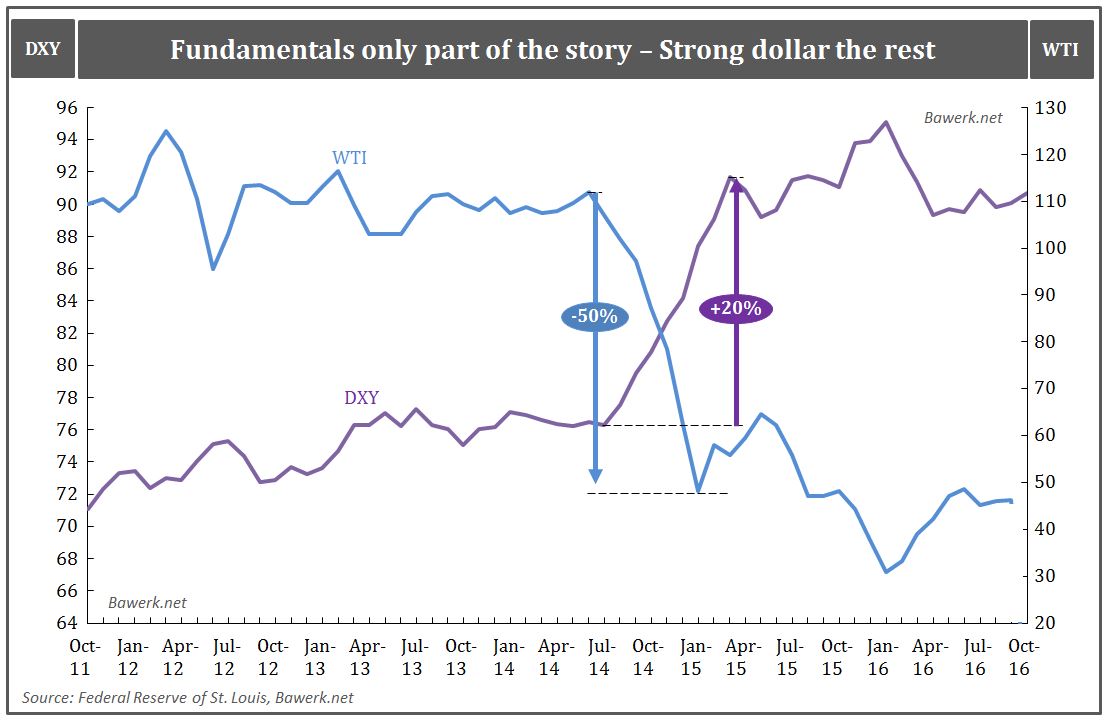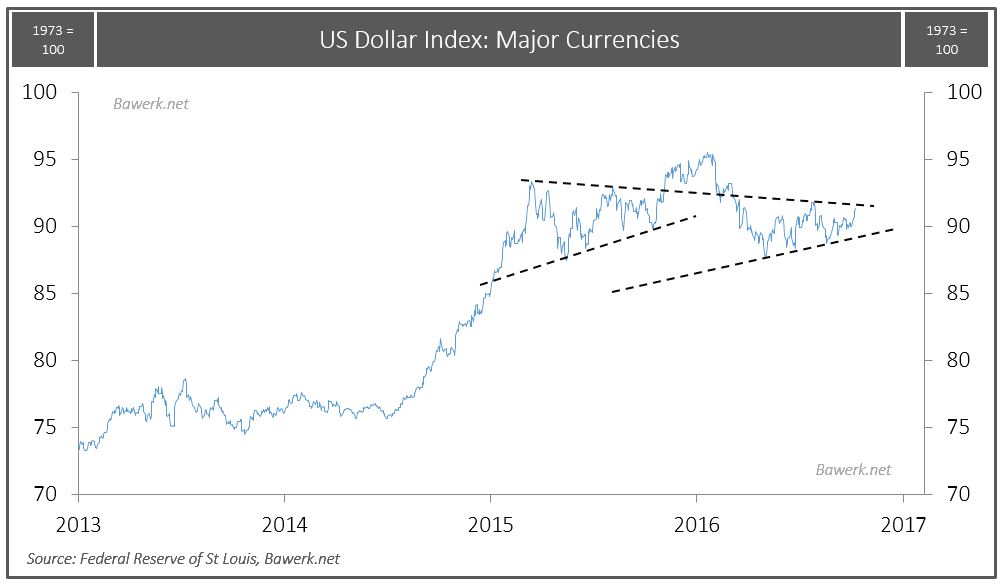Category Archive: 6b.) Bawerk

The ‘Strange’ Death of Mr. Abadi
As expected, PM Abadi was always going to come off worse in his last ditch attempt to try and regain some kind of political initiative by appointing a new look ‘technocratic’ government in Baghdad. But the ailing Prime Minister has managed to back hi...
Read More »
Read More »
Hillary Will be the Least of Your Worries – America has Economic Diarrhea
According to the National Bureau of Economic Research (NBER), the official recession arbiter, the US economy is currently at its fourth longest expansion in history. By the sheer nature of a capitalistic society with its inherent cyclicality it is a ...
Read More »
Read More »
Chinese Dragon: Breathing Credit Fumes
Economic forecasting, no matter how complex the underlying model may be, is essentially about extrapolating historical trends. We showed last week how economic models completely fail to pick up on structural shifts using Japan as an example. On the other hand, if an economy doesn’t really change much, as in the case of Australia over the last thirty years, model “forecast” are generally quite accurate.
Read More »
Read More »
Circulus in probando
In the latest semi-annual Keynesian incantation spewed out by the world’s best pseudo-scientists, we learn that growth has been too slow for too long and that in itself is the cause of slow growth. First, they promote debt-funded consumption because ...
Read More »
Read More »
OPEC’s Doha Dilemma: 3mb/d US lock in?
Bawerk shows that more than 3 mb/d of American oil production was helped by US$55.5bn in credit facilities, by excessive debt. This production is now at risk and the debt may not be repaid. The big OPEC players are playing against US shale oil and some smaller OPEC members that have higher costs.
Read More »
Read More »
Latin America – Seven Ugly Sisters in Deep Political Trouble
Get beyond endless Latin American headlines burning column inches and you come to far broader strategic conclusion: The seven ‘ugly Latino sisters’, namely Brazil, Venezuela, Ecuador, Bolivia, Colombia, Mexico and Argentina are all deep political trouble from collapsed benchmark prices.
Read More »
Read More »
Greenspan, the Sheepherder
It is common knowledge by now that Federal Reserve Chairman Alan Greenspan oversaw, enabled and approved of, a major transition in the US economy. His infamous “Greenspan-put” in which his actions at the central bank would be driven, if not dictated,...
Read More »
Read More »
Revolutionary Guards: The Way of the Iranian Future
Iranian elections have supposedly put a very nice ‘moderate’ spin on Iranian politics in parliamentary ranks, and more importantly, Assembly of Experts composition. While it would be churlish to deny, it represents a significant step forward for Pres...
Read More »
Read More »
Increasing Price Inflation is Not a Sign of Healthy Recovery, but the Last Stage Before Recession
In a recent article by Kessler Companies (hat tip Zerohedge) they correctly point out that inflation, as measured by the consumer price index, have a tendency to accelerate as the US economy moves into a recession. Contrary to popular belief, the beg...
Read More »
Read More »
Can Maduro Mayhem Last to 2017
Things are turning increasingly ugly in Venezuela between President Maduro and the opposition MUD. The core political problem after December 2015 elections is the PSUV are now using the courts to neuter any opposition voices that formally hold a legi...
Read More »
Read More »
How Italy will fail and drag down the European Project
Italy is big enough to matter (it is the eight largest economy on the planet), but so uneventful that most does not pay any attention to what is going on there. We contend that Italy will, during the next year or two, be on everyone’s radar screen as it has the potential to derail the European project for real.
Read More »
Read More »
China’s 3 trillion dollar mistake
When looking at the current state of the Chinese economy it is important to note what happened leading up the ongoing predicament. By managing the USD/CNY exchange rate the Chinese factory worker was essentially funding excess consumption in the Unit...
Read More »
Read More »
What the Fed Did NOT do
We will not spend much time discussing what the FOMC did as tons of ink have been spilled on that already. We will rather spend more time on what the FOMC did not do. A short recap will suffice; the FOMC did raise the interest rate band by 25 basis p...
Read More »
Read More »
How Peak Debt Constrain the Fed from Moving Rates Higher
We have argued for a long time that 2016 will probably be a year of recession in the US and the Federal Reserve’s intent on raising rates will only help expedite it. We believe the current rate cycle will be short lived as the Federal Reserve is cons...
Read More »
Read More »
Unintended consequences of lift-off in a world of excess reserves
Bar a disastrous NFP print this coming Friday the US Federal Reserve will change the target range for the Federal Reserve (Fed) Bank’s Funds rate from the current level of zero – 25bp to 25 – 50bp on December 16th. The Fed will effectively raise the...
Read More »
Read More »
What a Negative SWAP Spread Really Means
SWAP spreads recently took a nosedive and are once again trading at negative levels, even for shorter maturities. As can be seen from the chart below, treasury yields, here represented by the 10 year maturity, rose during QE policies programs contrad...
Read More »
Read More »
How the Fed gave away its independence – Interest Rate Sensitivity at ZLB
In fiscal year 2014, which ended September 30 2014, the Federal government of the United States reported a cumulative deficit of US$484 billion, while the total debt outstanding increased by more than a trillion dollars. For fiscal year 2015, the dif...
Read More »
Read More »
The Credit Multiplier – Revisited
In last week’s article, we explained how the yield curve could cause GDP to contract in The Yield Curve and GDP – a causal relationship. Some of our readers suggested the analysis was wrong on back of an outdated view of modern money creation. The cr...
Read More »
Read More »
The Yield Curve and GDP – a causal relationship?
One of the most reliable indicators of an imminent recession through recent history has been the yield curve. Whenever longer dated rates falls below shorter dated ones, a recession is not far off. Some would even say that yield curve inversion, or backwardation, help cause the economic contraction.
Read More »
Read More »
The Great Unwind
Over the decade long commodity boom made in China we have all been accustomed to the large and growing current account surpluses being recycled back into western financial security markets. Case in point, from 2000 to its peak in the fall of 2013 the...
Read More »
Read More »









